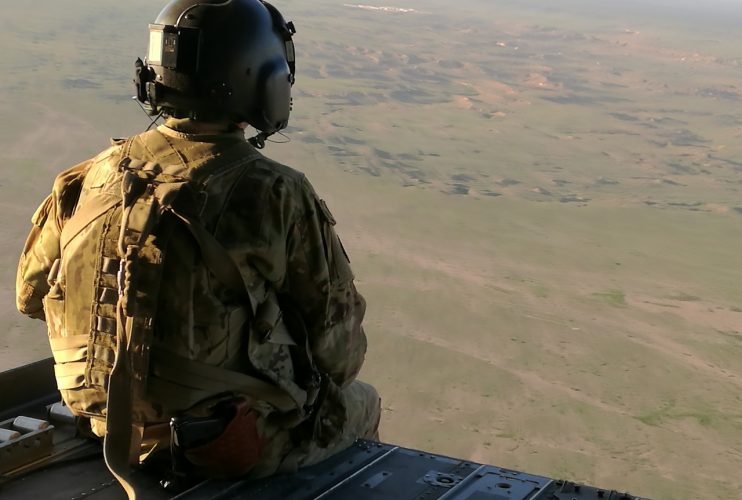By J.M. Phelps (One News Now)
A former CIA operations officer and CIA team leader suggests the same bureaucratic mistakes that were made in the U.S. invasion of Iraq are also being made in America’s involvement in Afghanistan.
Similarities between the Iraq invasion and the war in Afghanistan were addressed with Sam Faddis. Following Paul Bremer’s appointment by President George W. Bush as presidential envoy to Iraq in May 2003, the situation in the Middle East become “infinitely worse,” according to Faddis, who is now a senior editor for AND Magazine.
“The new American ‘governor’ of Iraq fired the entire Iraqi Army and, in essence, everyone who had ever worked for the Iraqi government,” Faddis explains, adding that the Iraqi military, police force, security services, and fire departments were all abolished.
Faddis tells OneNewsNow his CIA team had been on the ground in Iraq for almost a year with the responsibilities of preparing the battlefield and facilitating the entry of conventional military. He explains that without any consultation with his team, Bremer’s move “ensured violence, chaos and anarchy.”
Decisions were made by senior level officials with “no regard” for the intel gathered nor the recommendations given, Faddis contends.
“We were the only people in country prior to the [Iraq] invasion,” he says, adding that while hundreds of assets had been acquired and the CIA understood the situation in the country, “[we] were walled out of participation in a series of decisions that were catastrophic.”
The United States went to Iraq to accomplish one task, Faddis states – and that task was “to get rid of Saddam.” While the U.S. “succeeded brilliantly,” he argues, “mission creep then set in and the bureaucracy came to life.”
“We went from deposing a madman to attempting to remake an entire nation and resolve 1,500-year-old grievances.”
This, Faddis contends, has a number of similarities to what’s happening in Afghanistan today.
“We went there to overthrow the Taliban and chase Al Qaeda out of country” – both of which he admits both were short successes. “But [the U.S. then] took on the mad mission of turning Afghanistan into Switzerland in Central Asia.” And consequently – “almost two decades later, we are still there.”
The CIA veteran offers the beginnings of a solution in America’s longest war, which began in 2001. Currently, he says, there’s only one objective to accomplish: “To ensure Afghanistan does not ever again become a launching pad for attacks on the U.S. and U.S. persons.”
“[The U.S. needs] to go back to remembering why we are there,” he urges. “Forget nation building [and] focus on that one objective. Turn the mission over to intelligence officers and special operations forces, working with both the central government and, where necessary, local chieftains, tribal leaders, etcetera — [and] stop trying to change Afghanistan.”
Faddis calls this “[working] within the existing reality.”
In the end, Faddis thinks this approach would result in “a patchwork of relationships and understandings that gets us to where we want to be.” Some of those relationships will be “straightforward,” while others may be “informal,” he explains – the differentiation dependent on whether the relationship is with the central government or with others, like tribal warlords.
Either way, the intelligence expert attests “this is not a job for bureaucrats from Washington. [Instead, it] is a job for men and women who have spent their lives abroad, who are comfortable with ambiguity and who know how to make things happen in dirty, dangerous places.”
Faddis is author of “The CIA War in Kurdistan: The Untold Story of the Northern Front in the Iraq War.”
J.M. Phelps is a counter-terrorism specialist, suicide bombing expert, and freelance journalist, focusing on national security for OneNewsNow. He is also editor and publisher of the website Lantern of Liberty.
Originally published by One News Now on Thursday, February 13, 2020.
This column is printed with permission. Opinions expressed in columns published by Lantern of Liberty are the sole responsibility of the article’s author(s), or of the person(s) or organization(s) quoted therein, and do not necessarily represent those of the staff or management of, or advertisers who support Lantern of Liberty.

